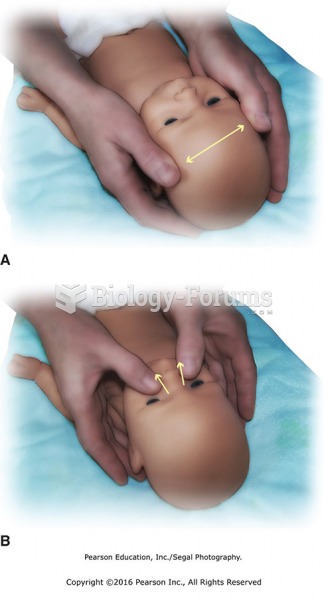|
|
|
People with high total cholesterol have about two times the risk for heart disease as people with ideal levels.
As of mid-2016, 18.2 million people were receiving advanced retroviral therapy (ART) worldwide. This represents between 43–50% of the 34–39.8 million people living with HIV.
Atropine was named after the Greek goddess Atropos, the oldest and ugliest of the three sisters known as the Fates, who controlled the destiny of men.
Before a vaccine is licensed in the USA, the Food and Drug Administration (FDA) reviews it for safety and effectiveness. The CDC then reviews all studies again, as well as the American Academy of Pediatrics and the American Academy of Family Physicians. Every lot of vaccine is tested before administration to the public, and the FDA regularly inspects vaccine manufacturers' facilities.
In 1864, the first barbiturate (barbituric acid) was synthesized.
 Cradle the head to finish. Rest the head on the table. Place your fingers on the sides of the head ...
Cradle the head to finish. Rest the head on the table. Place your fingers on the sides of the head ...
 Broadening effleurage to lower leg. Place heels of the hands together over tibia (no pressure over ...
Broadening effleurage to lower leg. Place heels of the hands together over tibia (no pressure over ...





